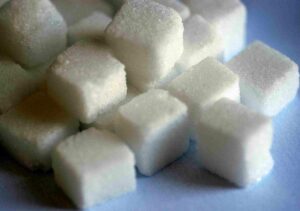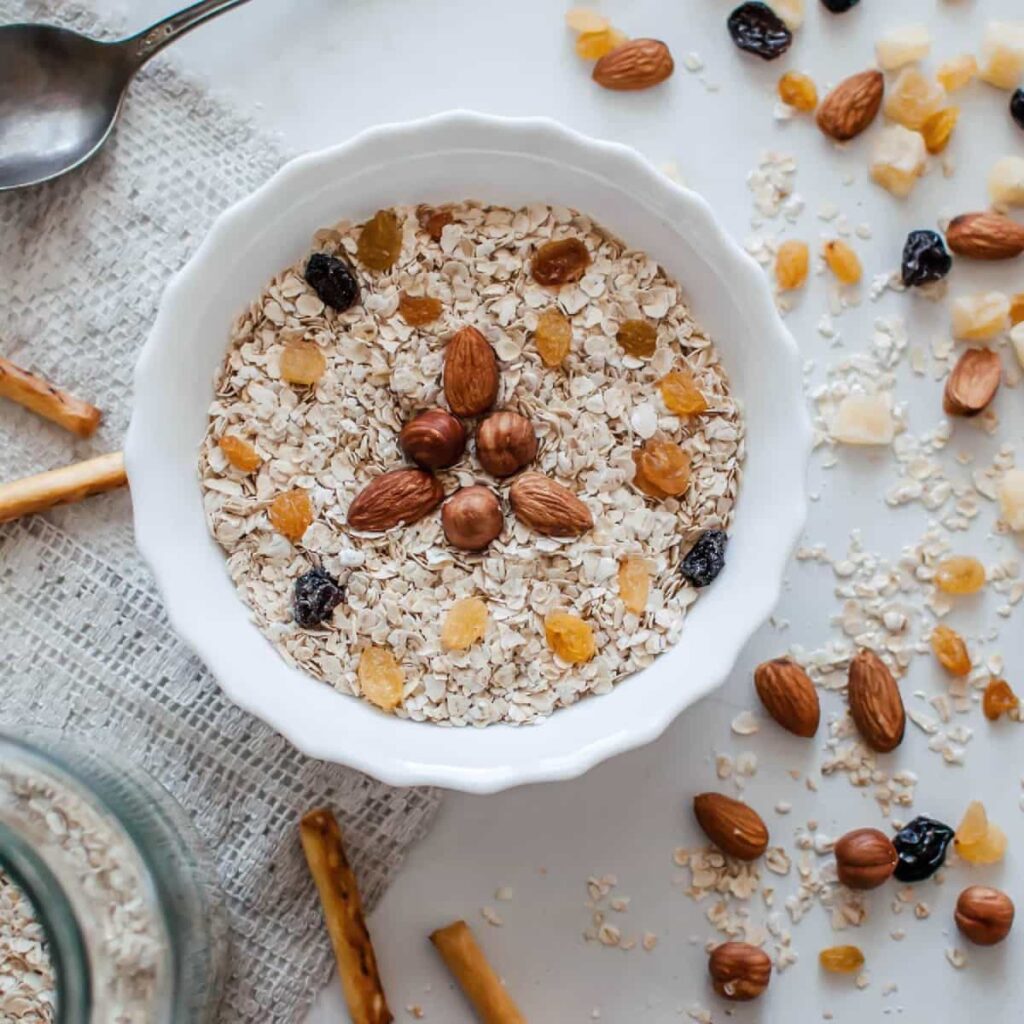When it comes to weight loss, most people think that calories are the enemy. And while it is true that reducing your calorie intake can help you lose weight, it’s not the only factor that matters. In this blog post, we will discuss the truth about calories and what you should know in order to achieve your health and fitness goals.
Contents
What Are Calories?
Calories are units of energy. Any type of food will contain some amount of calories, and the human body needs a certain number of these each day in order to function properly. Eating too few or too many calories can have a negative effect on your health, so it is important to be aware of how many you are consuming.
What Are Empty Calories?
 Empty calories have no nutritional value, they contain sugars and/or highly processed grains, such as white flour. These sources of empty calories, when consumed in excess, can lead to weight gain and a host of other health problems. Many sugary drinks and snack foods are high in these, so it’s important to read labels carefully and watch your intake of these items.
Empty calories have no nutritional value, they contain sugars and/or highly processed grains, such as white flour. These sources of empty calories, when consumed in excess, can lead to weight gain and a host of other health problems. Many sugary drinks and snack foods are high in these, so it’s important to read labels carefully and watch your intake of these items.
Not all calories are equal. Consuming a diet that is made up of mostly unprocessed foods and nutrient-dense sources of macronutrients can provide your body with the vitamins, minerals, and essential nutrients that it needs for optimal health. Eating too many of these from empty sources, such as sugary drinks or processed snacks, can lead to weight gain and a host of other health problems.
Daily Requirement
The Dietary Guidelines recommend that adults consume somewhere between 1,600 and 2,400 calories each day, depending on their age and activity level. For most people, this range is a good starting point to maintain their weight.
However, those who are looking to lose or gain weight may need to adjust their calorie intake accordingly. A person needs about 800-1000 kcal a day in order to keep their body functioning properly. Consuming fewer calories than this can lead to fatigue, nutritional deficiencies, and even organ damage over time.
Foods High In Calories
 15 high-calorie foods include avocados, nuts, seeds, cheese, olives, dark chocolate, whole milk yogurt and cream cheese (full-fat), peanut butter and other nut butter, fatty fish such as salmon and mackerel, dried fruit such as raisins or dates, coconut milk, and olive oil.
15 high-calorie foods include avocados, nuts, seeds, cheese, olives, dark chocolate, whole milk yogurt and cream cheese (full-fat), peanut butter and other nut butter, fatty fish such as salmon and mackerel, dried fruit such as raisins or dates, coconut milk, and olive oil.
The calories in each of these foods vary depending on the size, but they are generally higher than other food options. For example, a serving of avocados contains around 160 kcal, while a serving of almonds contains around 170 kcal.
Foods Low In Calories
15 low-calorie foods include fruits, vegetables, nuts and seeds, whole grains, legumes and beans, lean proteins, and dairy products such as yogurt or cottage cheese, fish, and seafood. All these foods are nutrient-dense which means they contain a lot of vitamins, minerals, and other important nutrients for your body’s functioning. Eating smaller portions of any food can also help you cut down on calories.
How Can Excess Calories Lead To Weight Gain?
Too much of anything can be a bad thing, and calories are no exception. Eating more calories than you burn off can lead to weight gain, as your body stores any extra energy as fat. This is why it’s important to limit calorie intake while also getting enough exercise to stay fit and healthy.
Eating too many of the wrong types of food can also cause weight gain. Foods that are high in unhealthy fats, sugar, or refined grains are usually high in calories but low in nutrients. These foods provide little nutritional value and can contribute to weight gain if eaten in excess.
How Do Calories Affect Weight?
Weight can be affected by consuming more calories than are burned over time, resulting in weight gain. Conversely, consuming fewer calories than are burned will cause weight loss. The number of calories that a person needs to maintain their current weight usually stays the same but can vary based on age, gender, and activity level.
How To Burn Calories?
 There are many ways by which you can burn calories. Some of the most common and effective ways to do so include:
There are many ways by which you can burn calories. Some of the most common and effective ways to do so include:
- Exercise: Regular exercise is one of the best ways to burn calories. Any form of physical activity, such as running, jogging, swimming, cycling, or even dancing can help you lose weight by burning off excess calories. Strength training can also help build muscle mass and increase your metabolism.
- Eating Healthy Foods: Eating healthy foods such as fruits, vegetables, whole grains, lean proteins, and healthy fats is essential for controlling your calorie intake while still providing all the necessary nutrients your body needs. Avoiding processed foods and sugary beverages will also help you reach your weight loss goals faster.
- Creating A Calorie Deficit: A calorie deficit is when you eat fewer calories than your body needs. This forces your body to burn stored fat in order to make up the difference. You can achieve a calorie deficit by reducing your daily intake of calories or increasing the amount of physical activity you do each day.
- Interval Training: Interval training is a type of exercise that alternates between short bursts of intense effort and periods of rest or low-intensity exercises. Research has shown that interval training helps to boost metabolism and burn more calories in a shorter amount of time, making it an effective tool for weight loss goals.
- Keeping Track: Tracking what you eat and knowing how many calories are in each meal will help you make informed decisions about your diet and create a calorie deficit. A food diary or calorie tracking app can help you stay on top of your calorie intake so that you reach your weight loss goals faster.
By following these simple tips, you can start burning calories and losing weight in no time. Just remember to be consistent with your efforts, seek professional guidance if necessary, and always take care of yourself!
What Role Do Macronutrients Play?
Macronutrients, such as carbohydrates, proteins, and fats, provide the body with essential nutrients and energy. Consuming a balanced diet that includes all of these key macronutrients is important for optimal health. Carbohydrates provide energy, while proteins help build and repair muscle tissue. Fats are important for the absorption of certain vitamins and minerals, as well as for providing your body with long-term energy.
Calories Matter for Good Health
 While it’s true that calories are a unit of energy and play an important role in our daily diets, they can also be misleading when it comes to weight loss. Many people think that eating fewer calories will lead to faster weight loss, but this isn’t always the case. Although reducing caloric intake is part of any healthy diet plan, it’s important to understand the basics of calories and how they contribute to your overall health.
While it’s true that calories are a unit of energy and play an important role in our daily diets, they can also be misleading when it comes to weight loss. Many people think that eating fewer calories will lead to faster weight loss, but this isn’t always the case. Although reducing caloric intake is part of any healthy diet plan, it’s important to understand the basics of calories and how they contribute to your overall health.
Calories provide the energy our bodies need to function, including things like breathing, thinking, exercising, and digesting food. It’s important for us to get enough calories in order to stay healthy and energized. However, eating too many calories can lead to weight gain, which can increase the risk of certain health problems.
In order to maintain a healthy weight, it’s important to balance calorie intake with physical activity. That means getting enough exercise while also controlling how much you eat. Eating fewer calories than you burn off is one way to lose weight, but you should also focus on eating a balanced diet that includes plenty of fruits, vegetables, proteins, and whole grains.
It’s also important to remember that not all calories are the same. Foods like cookies and candy may be high in calories but lack essential vitamins and minerals. On the other hand, nutrient-rich foods like fruits and vegetables are low in calories but can provide vital nutrients.
Calories can be a useful tool, but they’re not the only factor when it comes to good health. Eating responsibly and exercising regularly will help you reach your health goals, no matter how many calories you consume. Understanding the basics of calories can help you make healthy, informed decisions about your diet and lifestyle.
Calories Are Not Everything
People often think that reducing caloric intake is the only factor in losing weight. It’s important to remember that calories are only one part of a healthy diet. Eating more nutrient-dense foods and exercising regularly are two other factors that can contribute to a successful weight loss plan.
It’s also important to pay attention to how many calories you’re consuming each day. Eating too few calories can have a negative effect on your metabolism and lead to nutrient deficiencies and fatigue. On the other hand, eating too many calories can cause weight gain and increase the risk of obesity-related diseases.
The bottom line is that calories play an important role in our overall health, but they’re not the only factor. Eating a balanced diet and exercising regularly can help you reach your health goals.
With the right knowledge, you can make informed decisions about your nutrition and take control of your health.
Conclusion
Calories can be a useful tool for maintaining and achieving your health goals. Knowing the difference between empty calories and nutrient-dense sources of macronutrients is key. Facts can help you make healthier choices and reach your nutrition goals. Knowing when to reduce or increase calorie intake is an important part of any healthy diet plan.
Consider contacting FitMantra for additional information on nutrition and fitness. You can also get in touch with their nutrition experts through our online nutrition counseling, who can guide you through the process and help you achieve your fitness goals. You can also lose weight with the help of our weight loss program. Download our Fitness App on Android to learn more about us.
